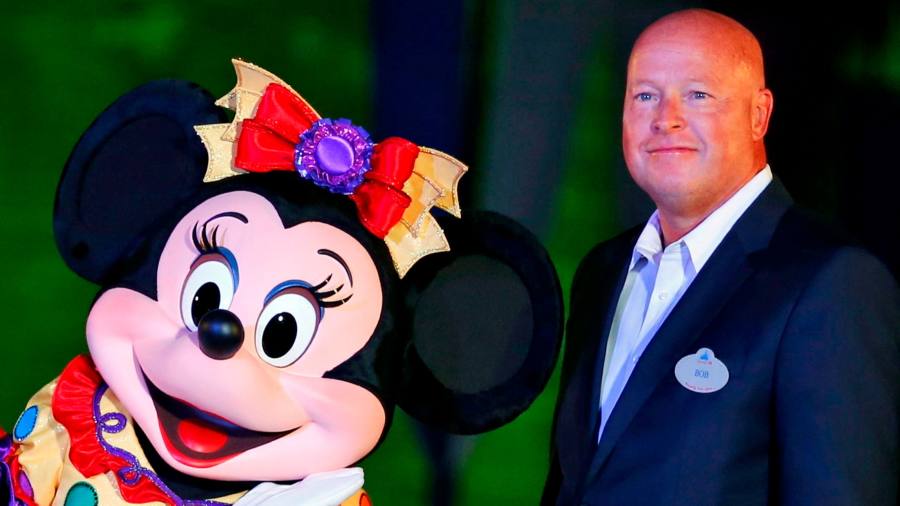
Hollywood has been captivated this week by the stunning ousting of Bob Chapek — who, tellingly, had been referred to internally as “Bob C” — and the return of Bob Iger atop Disney.
Jimmy Kimmel, who hosts a late-night show on Disney’s ABC television channel, summarised the situation: “New Bob is now Old Bob and Old Bob is the new New Bob . . . For us, it’s kind of like finding out your mom decided to dump your stepdad to get back together with your real dad.”
But forgotten amid the drama of these two men vying for control of one of the largest companies in the world, is the Disney board’s role in allowing any of this to happen.
A quick recap: Iger, the larger than life former-and-current Disney chief executive, delayed his retirement at least four times over the past decade. Then, he failed to choose a suitable successor. Now, Disney will pay Iger more than $50mn to try again, and pay the failed successor more than $20mn to exit.
“Is that a great use of shareholder resources?” Charles Elson, a corporate governance expert at the University of Delaware, asks. He notes that Disney’s board renewed Chapek’s contract only five months ago, and stated unanimous support for him. “None of this makes a lot of sense,” Elson says.
Longtime Disney-watchers will notice that this is a sequel. In the 1990s, chief executive Michael Eisner installed Michael Ovitz as his presumed successor, but it later emerged in a court case that he told a colleague Ovitz was a “psychopath” and he got rid of him within 14 months.
Today’s Disney drama is not as financially destructive as the 1990s debacle, which forced Disney to pay Ovitz $140mn to leave and resulted in lawsuits that hung over the company for more than a decade. Chapek, who started as chief executive in February 2020, also lasted longer than Ovitz, although 33 months is nothing to brag about.
Disney has given Iger two years to find another successor — a seemingly long time considering he has been at it for a decade.
Both of these fiascos raise the question of why the chief executive has such influence over choosing his — and at Disney, it has always been his — own successor in the first place. That should be the task of the board, but Iger had been chair of Disney’s board until last year, giving the chief executive considerable power over the decision. Elson says that Disney “seems to be locked in the traditional mindset that CEO dominates the board”, even as corporate governance best practices move in the other direction.
“This is the largest company that has had an ongoing issue [with succession] that really dates back to the 1990s,” he said. “They’ve had a problem for a generation.”
Disney’s board ostensibly represents shareholder interests. So what is the board’s position? It is somewhat split between Chapek and Iger supporters, according to people close to the situation. In the past few months, board members have been canvassed by several Disney executives who are Iger loyalists with complaints about Chapek.
Even Disney’s chief financial officer took the unusual step of going to the board. Christine McCarthy had an argument with Chapek before this month’s disastrous earnings release, and had expressed to the board that she had lost confidence in him, according to people familiar with the matter.
In fairness, Chapek has had particularly bad luck. He stepped into the top job a few weeks before a once-in-a-century pandemic. Chapek was also unfortunate in being the one carrying out Iger’s strategy — waging an expensive battle against Netflix — even after the investment world changed their mind about it.
It’s impossible to say how things would have turned out if it weren’t for the coronavirus pandemic, inflation, the war in Ukraine and tumbling stock markets. But the fact that a company that employs hundreds of thousands of people can seemingly falter without one specific person in charge, is not a fantastic sign.
Disney’s board seems to have woken up. MoffettNathanson analysts said: “We applaud Disney’s board for the courage to make this change.” Iger is returning as chief executive but, critically, he will not lead the board this time.
But this is a momentary reprieve rather than a permanent solution, and the clock is already ticking. As one top-10 shareholder in Disney cautioned: “We’ll be addressing the succession plan again within the next 12-18 months.”